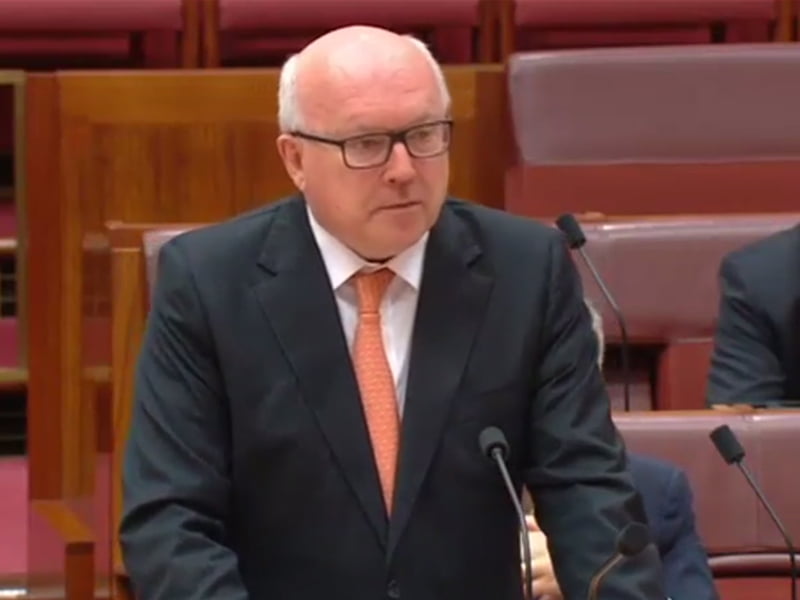Laws regulating digital currency exchanges for the first time have been approved by Parliament in a major milestone for the burgeoning local sector.
The amendments to the Anti-Money Laundering and Counter-Terrorism Financing Act easily passed through Parliament at the end of last week thanks to bipartisan support, despite the Opposition saying it doesn’t go far enough and criticising the government’s “light-touch” approach.
The laws close a “regulatory gap” by bringing digital current exchange providers under the remit of financial intelligence agency Austrac, making providers subject to the same reporting and regulatory requirements as larger banking competitors.

Along with the government passing a bill to remove the double taxation of digital currencies in October, it is also the first time digital currencies have been recognised and regulated by the Federal government.
The new rules require digital currency exchanges to monitor and report certain transactions, enrol with Austrac and register on the new Digital Currency Register, to identify and verify the identities of their customers, and keep certain records relating to transactions and customer identification for seven years.
It’s serious business too, with fines of up to $105,000 and a jail term of up to two years for an exchange not complying with the rules for the first time, with a doubling for the second offence.
The changes were broadly welcomed by the local digital currency sector, with the new compliance and reporting obligations seen as a small price to pay for the associated trust and legitimacy it lends the growing sector.
Speaking in Parliament, Attorney-General George Brandis said the changes would “bolster public and consumer confidence in the sector”.
“Most businesses in the digital currency exchange sector welcome the introduction of AML/CTF regulation, as they are already mindful of the risks posed by the service they provide,” Senator Brandis said.
“Many digital currency exchange providers already comply with a voluntary code of conduct that includes guidance on measures for protecting their services from illicit exploitation for money laundering and terrorism financing purposes,” he said.
FinTech Australia worked closely with the federal government on the amendments through its Blockchain Working Group, which is co-led by FlashFX CEO Nicolas Steiger.
“To enable further growth of the digital currency industry in Australia, this is a milestone achievement that will allow for an equal regulatory playing field and should only solidify consumer trust in this new industry,” Mr Steiger said.
The new rules will help local FinTechs and blockchain startups compete on the world stage, FinTech Australia CEO Danielle Szetho said.
“The legislation will help bring further legitimacy to exchanges operating in Australia, unlocking the benefits of digital currency usage and trading whilst ensuring this is done in an appropriate way,” Ms Szetho said.
“Overall, this development is the latest in a series of important steps that will ensure Australia’s blockchain and digital currency industry remains one of the most highly regarded and vibrant in the world.”
Despite ultimately supporting the bill, the Opposition has said it doesn’t go far enough, especially with digital currency providers.
Under the new rules, digital currency providers will be required to report any transactions involving physical currency that exceeds $10,000 to Austrac. Several Labor MPs and Senators said in Parliament that this threshold should be lowered to zero.
“This means that 99 per cent of cash transactions would not be captured by the anti-money laundering and counter-terrorism financing regime,” Labor Senator Deb O’Neill said.
“While the Opposition supports the government’s decision to bring digital currency exchange providers into the anti-money laundering and counter-terrorism financing regime, we are also disappointed by the approach that they have taken.”
“The government has taken a particularly light-touch approach to regulating digital currencies in this bill.”
An earlier government consultation paper on the bill had proposed a zero dollar threshold for reporting, but this was increased in the final legislation.
In her speech, Labor MP and shadow justice minister Clare O’Neill said a lot more needs to be done to ensure digital currencies aren’t used for illegal activities.
“Digital currencies are taking up an increasing share of the currencies used to pay for crime,” Ms O’Neill said.
“They’re used not just for money laundering and terrorism financing, but to facilitate really any criminal activity that requires a level of anonymity. It is very clear that we are going to need to do a lot better to ensure that bitcoin comes under these and other regulatory regimes,” she said.
Do you know more? Contact James Riley via Email.

